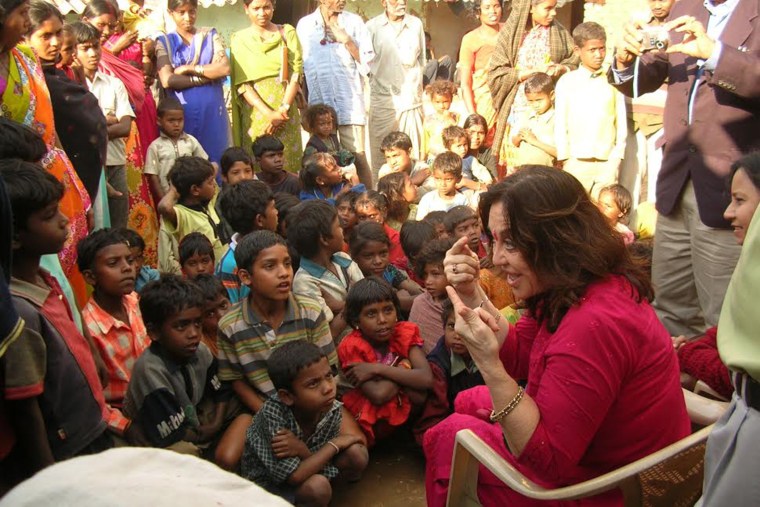"Everybody should have a chance not just to survive but to thrive," French Countess Albina du Boisrouvray said on Tuesday. She explained at a small media gathering in New York City that lasting global change can be achieved by helping people become "autonomous, economically independent," and by giving them the means to raise their children properly.
The cousin of the late Prince Rainier of Monaco and granddaughter of the Bolivian tin baron Simón Patiño, du Boisrouvray began her working life as a model and an actress. Three years after the 1986 death of her son Francois-Xavier Bagnoud, she founded the Association Francois-Xavier Bagnoud (FXB International) in an effort to carry on his legacy as a pilot who rescued people in need.
That decision came with a notable commitment on her part: du Boisrouvray gave up her career as a successful film producer and invested $100 million of her inheritance in the organization. During the past 25 years, FXB International has partnered with Harvard University and economically empowered 75,000 children and adults through its FXBVillage model. It focuses on providing impoverished families with health care, housing, education, nutrition, and sustainable business — the five factors the organization identified as crucial to ending poverty and achieving self-reliance.
For du Boisrouvray, the past 25 years have been dedicated to helping communities in Africa, Asia, and Latin America — particularly women and children stricken by AIDS and extreme poverty. The foundation initially focused on helping AIDS orphans who du Boisrouvray felt were particularly under-served in the 1980s.
"[FXB International] takes care of the forgotten issues of forgotten people in forgotten places," she said.
With guidance from human rights advocate and AIDS expert Jonathan Mann, du Boisrouvray quickly learned that to help children combat AIDS, she had to help their families mobilize financially. While microcredit was the standard philanthropic model in the '80s, du Boisrouvray followed her instinct and chose to invest in these families with a holistic approach.
She was ridiculed for it at the time, but the results have since borne out: 86% of families following theFXBVillage model are living above the poverty line four years after the program's end, which supports families with food, health care, education, housing, and business. The program's average cost per person per year runs between $125 to $230. The organization reports that there are 150 total "FXBVillages" in Africa, Asia, and Latin America, and that 17 million people have benefited from the organization as a whole.
Women, the primary caretakers of their family, are key to the success of the program because they often go on to become self-sustained entrepreneurs. Through FXBVillage, women have been paying off loans faster than men.
"We can rely on women to change the world," du Boisrouvray said proudly.
Arlan Fuller, the executive director of the FXB Center for Health and Human Rights at Harvard University, echoed the importance of focusing philanthropy on mothers, in particular. "The greatest threat to children in Africa is actually the death of their mother," he said.
The FXBVillage model for eradicating poverty has been replicated in several countries, including Rwanda, Uganda, India, Democratic Republic of the Congo, Colombia, China, and Burundi.
"It's a system and the system works," du Boisrouvray said of the organization's transformation during the past 25 years. "So we have to choose only 80 to 100 families depending on the context. [Those chosen are] the ones who are the most poor in the community, the ones who have the most children to raise, and the ones who have the best reputation in the community of being the hardest workers, honest, and wanting to pull themselves out of their misery."
Through the FXB Center for Health and Human Rights at Harvard University, FXB International has the university's support in policy, research and education. They are currently working to make the FXBVillage methodology an open-source tool kit that can be used to serve a wider audience, as well as other region-specific projects. One project started in partnership with Harvard is called "The Cost of Inaction," and it stemmed from du Boisrouvray's idea to prove to governments and policy-makers that it is more cost-effective to alleviate poverty than to ignore it.
"The costs of not doing anything — especially when you look at it through the lens of a child — that cost can be enormous," Fuller said. "You're missing aspects of almost a lost generation if you're not acting on the benefits here and now."
